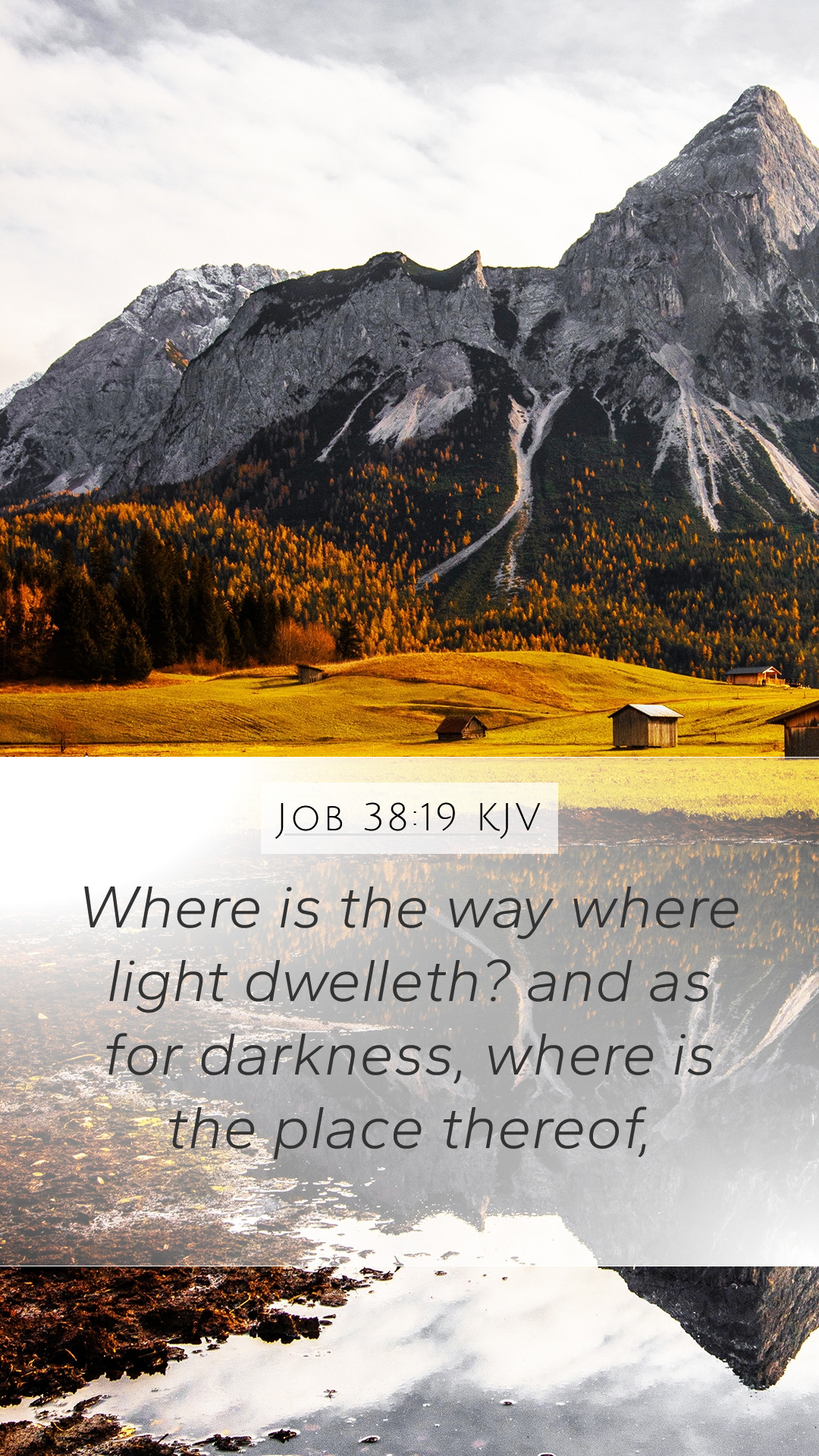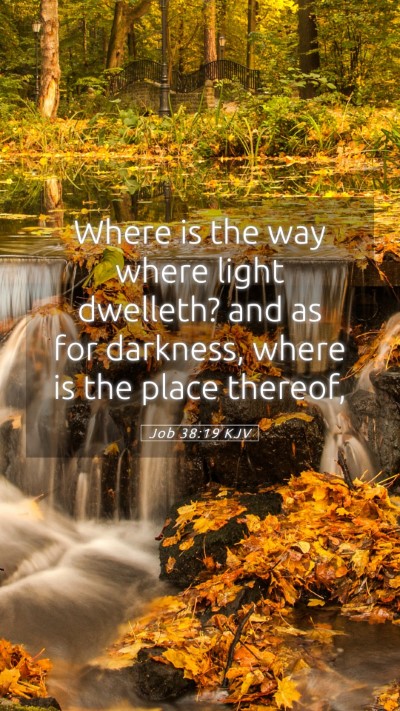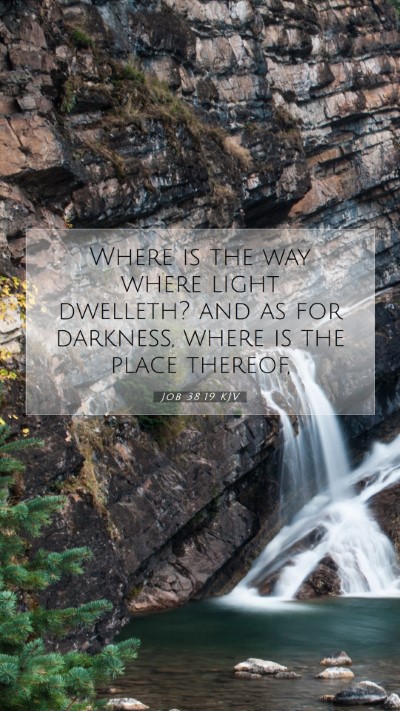Understanding Job 38:19
The verse Job 38:19 states: "Where is the way to the dwelling of light? And darkness, where is its place?" This verse forms part of God's response to Job, where He challenges Job's understanding of the universe and His divine ways.
In this verse, God is essentially questioning Job about his ability to understand the creation and operational dynamics of His universe. This inquiry invites readers to reflect on human limitations in contrast to divine omniscience.
Bible Verse Meanings
This inquiry regarding light and darkness stresses the complexity and order of God's creation, illustrating how little humans grasp the divine workings. The verse resonates deeply within broader themes of knowledge, wisdom, and the nature of existence, underscoring the importance of a humble heart before God.
Bible Verse Interpretations
From a hermeneutical perspective, Job 38:19 can be interpreted as a profound reminder of God's sovereignty. The question posed signifies God's authority over all creation and serves to remind Job (and readers) of the limits of human understanding in the face of divine mysteries.
Bible Verse Understanding
Understanding this verse requires grasping its context within the narrative of Job. After a series of intense discussions about suffering and divine justice, God's response reestablishes the hierarchy between Creator and creation. The exploration of light and dark signifies the moral complexities in the world and invites contemplation on spiritual enlightenment.
Bible Verse Explanations
The explanations surrounding Job 38:19 emphasize God's omnipotence. Matthew Henry remarks on the grandeur of God's creation and highlights the need for Job to recognize God's greatness in contrast with his own limitations. Albert Barnes enhances this interpretation by addressing the metaphorical significance of light as truth and knowledge, while darkness represents ignorance and separation from God.
Bible Verse Commentary
Commentaries on Job 38:19 note that this particular verse marks a pivotal turnaround in the dialogue between God and Job. Adam Clarke points out the rhetorical nature of the questions posed by God, inviting readers into a deeper quest for understanding not just of divine will but of existence and morality itself.
Key Insights from Commentaries
- Matthew Henry: Emphasizes the awe of creation and God's providence.
- Albert Barnes: Discusses the metaphor of light as knowledge; darkness as ignorance.
- Adam Clarke: Points out the rhetorical methodology of God's questions.
In-Depth Bible Verse Analysis
In-depth analysis reveals that Job 38:19 situates itself within a larger thematic inquiry about human suffering. This verse not only seeks to reveal the limits of understanding but also encapsulates the struggle between faith and doubt. Job’s earlier assertions of righteousness are starkly challenged in light of his ignorance concerning the cosmic order prescribed by God.
Historical Context of Bible Verses
The historical context of the Book of Job plays a crucial role in understanding this verse. During ancient times, the struggle with suffering and the quest for divine justice were prevalent themes. Interpreting Job in this light positions the inquiries made by God not just as challenges, but as invitations to a deeper relationship with Him founded on trust rather than mere understanding.
Applying Bible Verses to Daily Life
Job 38:19 can apply to contemporary life by helping individuals recognize that not all questions about life can be answered. Embracing uncertainty and trusting in God's divine plan can serve as a source of solace and strength during trying times. Reflecting on the sovereignty of God encourages believers to cultivate a posture of humility in their faith journeys.
Significance of Job 38:19
The significance of this verse transcends its immediate literary context. It becomes a foundational principle in the discourse of theology concerning the nature of God as well as the epistemology of faith. It offers believers a paradigm through which they can navigate the complexities of life, emphasizing that divine truth often lies beyond human comprehension.
Bible Cross References
- Psalms 104:19 - Discusses God's creation of the moon that marks seasons.
- Isaiah 45:7 - Mentions God forming light and darkness, encapsulating the theme of sovereignty.
- John 8:12 - Jesus identifies Himself as the light of the world, further expounding the idea of light in scriptures.


